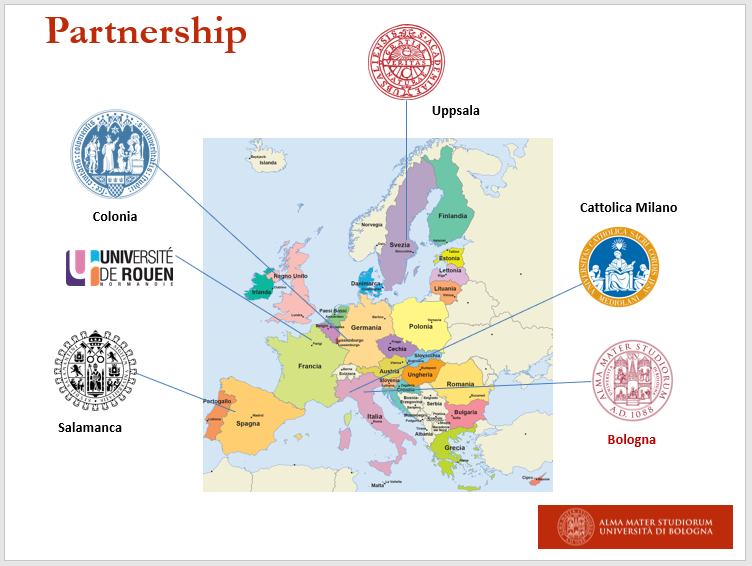Project
Overview
EULALIA (European Latin Linguistic Assessment), co-funded by the Erasmus+ programme of the European Union, is a three-years project (2019-2022) aimed at developing a comprehensive framework for the international certification of linguistic competences in Latin, following the model set by CEFR for modern languages.
In Europe more than 3 million students in secondary schools study Latin; at university level, Latin figures in many curricula, but the linguistic competence required of students can vary substantially across programmes (also within the same country). There is therefore a strong need for homogeneity and transparency in the recognition of skills and qualifications, in order to facilitate internationalisation and Europe-wide student mobility in the framework of programmes such as ERASMUS.
The teaching of Latin faces further challenges due to ongoing changes in contemporary society, and has to renew its methods by adopting open and innovative practices supported by multimedia digital technologies. There is evidence that this will favour the inclusion of categories such as students with special needs (visually impaired, individuals with learning disabilities) and students who, due to recent immigration, are not native speakers of the language of education in their new home countries.
Objectives
EULALIA creates an international framework for the certification of Latin language competences, and designs teaching activities that will be needed to develop the competences to be certified. The project will implement two different levels of multimedia certification tool-kits (one for the Basic and one for the Advanced Level) including a syllabus, a lexicon and a collection of exercises, which will be the product of the expertise of the involved partners.
The design of the tool-kits will follow a multimedia approach: all textual input will be accompanied by audio tools, with the aim of strengthening the role of the auditory channel in Latin teaching, to assist the number of learners with special needs. These comprehensive tool-kits, together with the certification tests, will be made available on an open access digital multimedia platform: this way, the involved institutions will collaborate in defining a genuinely European certification model, which is as respectful as possible of differences, open, inclusive and usable across all teaching levels (secondary school and higher education).
Partners
EULALIA will be the work of a transnational partnership composed of 6 universities: the University of Bologna (Italy), the University of Koeln (Germany), the University of Rouen Normandie (France), the University of Salamanca (Spain), the Università Cattolica del Sacro Cuore - Milan (Italy), the University of Uppsala (Sweden), thus involving five European countries. All these institutions have a long tradition of excellent scholarship and teaching in Latin, as well as expertise in digital humanities, teaching of modern languages and pedagogical strategies regarding special needs.
Outputs
EULALIA will develop three different Intellectual Outputs:
- O1 Basic level - methodological and pedagogical tools: the first project output consists of elaborating a framework for EULALIA certification regarding a basic level of competence in Latin; the framework includes Basic level guidelines, syllabus and lexicon.
- O2 Basic level - multimedia practical tools: once the competences required at the Basic level have been established, EULALIA will provide the necessary tools to develop and assess such competences, through exercises for the Basic level and a Basic level test.
- O3 Advanced level - methodological and pedagogical tools, multimedia practical tools: the final output is represented by the completion of the framework for EULALIA certification with the tools developed for the Advanced level (Advanced lavel guidelines, syllabus, lexicon, exercises and test).
